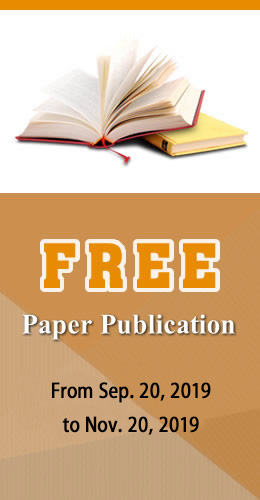Impact of the Socio-Economic Situation Post the Egyptian Revolution (2011)
[1]
Doaa M. Salman Abdou, Faculty of Management Sciences, October University for Modern Sciences and Arts (MSA), Cairo, Egypt.
[2]
Zeinab Abbas Zaazou, Faculty of Management Sciences, October University for Modern Sciences and Arts (MSA), Cairo, Egypt.
Egypt’s socio-economic and political condition is becoming a controversial matter after seven years following the 2011 revolution. The authors are intending to shed the light on the Egyptian socio-economic and political condition after six years since the 2011 revolution; trying to analyze the whole situation from the local and international perspective. How does the world see us? And how do we see ourselves? What is the current socio-economic and political situation in respect to data and information gathered from domestic and international institutions? And how do Egyptian people perceive the economic and political situation in their country now? These are questions which the authors will try to answer in this paper in order to come up with a real picture of Egypt after seven years since the 2011 revolution internally and externally. Researchers will conduct a field study in order to come up with Egyptian citizens’ perspectives and opinions from diverse demographic background regarding the entire political and socio-economic condition in the country through a quantitative research. Finally, we’ll state conclusions and recommendations hoping to come up with adequate answers and solutions for many economic and political problematic issues.
Socio-economic and Political Condition, Domestic and International Institutions, 2011 Revolution, Egyptian People Perception, Diverse Demographic Background, Quantitative Research
[1]
Achment Gonim and Hossam Abougabal, Resolving Egypt’s Housing Crisis Crucial to Long-Term Stability, Middle East Institute, July 27, 2016.
[2]
Akcesme, G. (2014). Economic motives behind the 2011 Egyptian Revolution (Doctoral dissertation, Monterey, California: Naval Postgraduate School).
[3]
Bayoumi, S. (2016). 30. Health and social justice in Egypt: towards a health equity perspective. World social science report, 2016: Challenging inequalities; pathways to a just world, 140.
[4]
Cecile Guerin, What challenges lie ahead for Egypt’s economic reforms, Global Risk Insights, February 22, 2017.
[5]
Clarke, K. (2018). Egypt in a Time of Revolution: Contentious Politics and the Arab Spring. Social Forces.
[6]
Central Bank of Egypt Annual Report (2015/16), retrieved in http://www.cbe.org.eg/en/EconomicResearch/Publications/AnnualReportDL/Annual%20Report%202015-2016.pdf
[7]
Central Bank of Egypt (CBE), “External Position of the Egyptian EconomyJuly/September 2016/17”, Volume No. (55).
[8]
Elsayed, A., & Wahba, J. (2017). Political Change and Informality: Evidence from the Arab Spring (No. 11245). Institute for the Study of Labor (IZA).
[9]
GURR, TED R., Why Men Rebel. Princeton, NJ: Princeton University Press, 1970. KORNHAUSER, WILLIAM, The Politics of Mass Society. New York: Free Press, 1959. SMELSER, NEIL, Theory of Collective Behavior. New York: Free Press, 1963. Journal of Conflict Resolution, 18 (1), 117-142.
[10]
IMF Country Report No. 17/17, Arab Republic of Egypt, Request for extended arrangement under the extended fund facility- Press release; staff report; and statement by the executive director for the Arab Republic of Egypt, January 2017.
[11]
World Bank. 2015. Egypt, Arab Republic of - Country partnership framework for the period FY2015-19. Washington, D.C.: World Bank Group. http://documents.worldbank.org/curated/en/773051468197407822/Egypt- Arab-Republic-of-Country-partnership-framework-for-the-period-FY2015-19
[12]
World Bank, July 2005, “Fiscal and public debt sustainability: Egypt Public Expenditure Review”.
[13]
World Bank, March 30, 2016, “Mexico Public Expenditure Review”. Report No: AUS1069.







